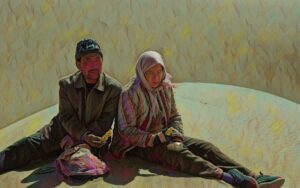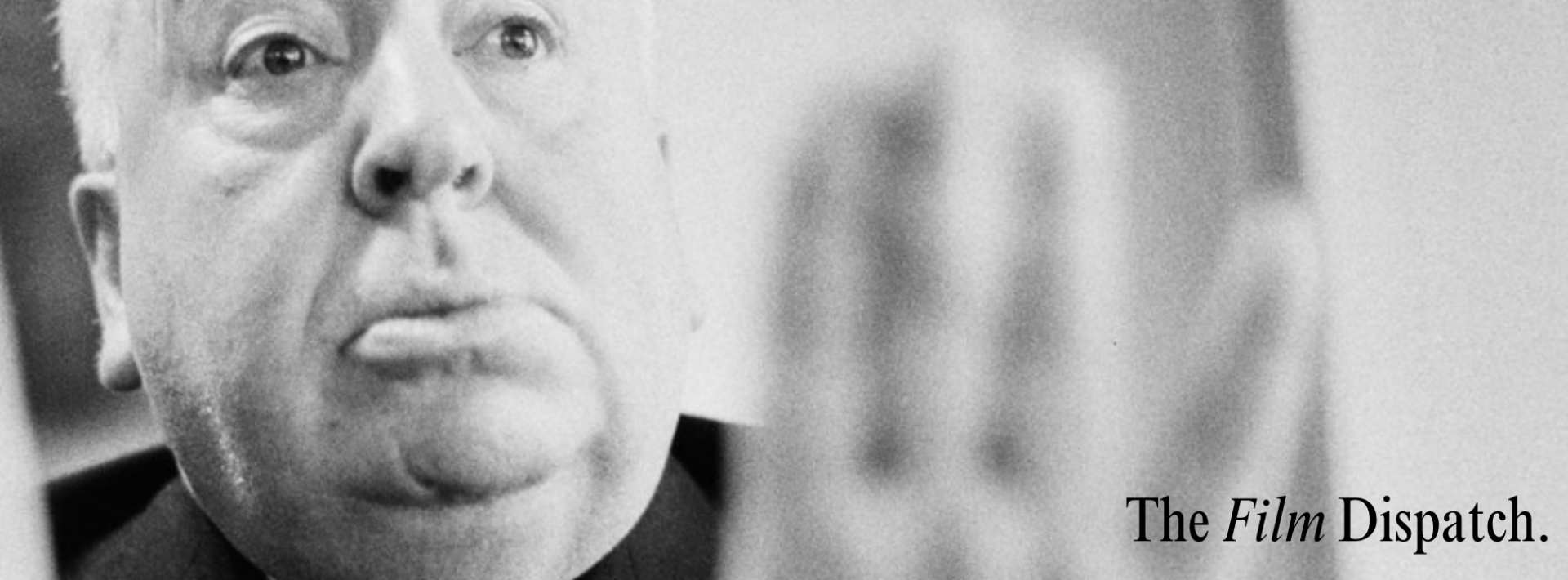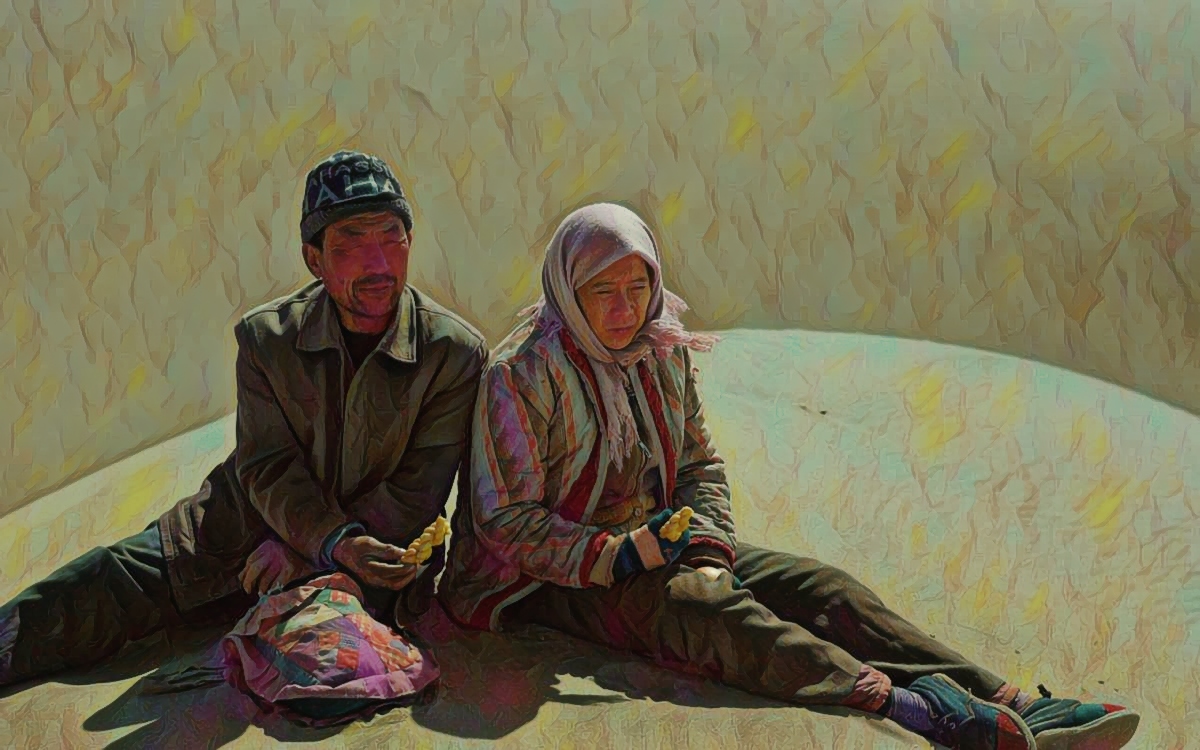
Return to Dust (Yin Ru Chen Yan, 2022) is a film written and directed by Ruijun Li and selected for the main competition of the 72nd Berlin Film Festival. The film tells the story of two lonely individuals, Youtie Ma (Renlin Wu) and Guiying Cao (Hai-Qing), who are abandoned by their respective families in China’s northwest countryside, and are tied to each other in their day-to-day ploughing.
In terms of time narrative, through the four seasons of the year, which are unique to Chinese vernacular farming, the two marginalized rural people are allowed to express their plight from their first encounter in spring, to their mutual support in building a house together under a rainstorm in summer, to their team effort at harvest time in autumn, to their end of life in winter. Their fate is also expressed in a small way by presenting the collective fate – that is, the plight of the disadvantaged – through their individual fates.
The film’s metaphors are also full of sympathy for the fate of the individual peasants and a critique of Capitalism – the phenomenon of the disembodied marginalised group under the operation of capital. Both Youtie and Guiying choose silence. In the scene where blood is drawn, because Ma’s rare blood type can save the life of the village landlord, the villagers coerce Ma to donate her blood. Instead of arguing with such force from public opinion, Ma says nothing and agrees. Neither Youtiao nor Guiying speaks during the whole process. After the officials leave the room, Guiying is found to be so frightened that she is incontinent. In this moment, silence and pathology reveal the unevenness of the volume of sound and the unidirectionality of the message. We can therefore understand that the director’s intention is to criticise the capitalists, who are on the more discursive side.
But despite this, the absence of a female perspective in the film is somewhat disappointing, despite the patriarchal traditions of rural China. This is a macho superhero film with a director-writer who has an underlying logic rooted deep in the genes of its male creators. The film revolves around the hero, Youtie, while Guiying is more of an instrumentalist in driving the motivation for male behaviour, including her death, in order to bring Youtie Ma to his kind of heroic end, as a way of celebrating his simplicity, his deep love.
Written for The Film Dispatch by Hannah Qiu.

